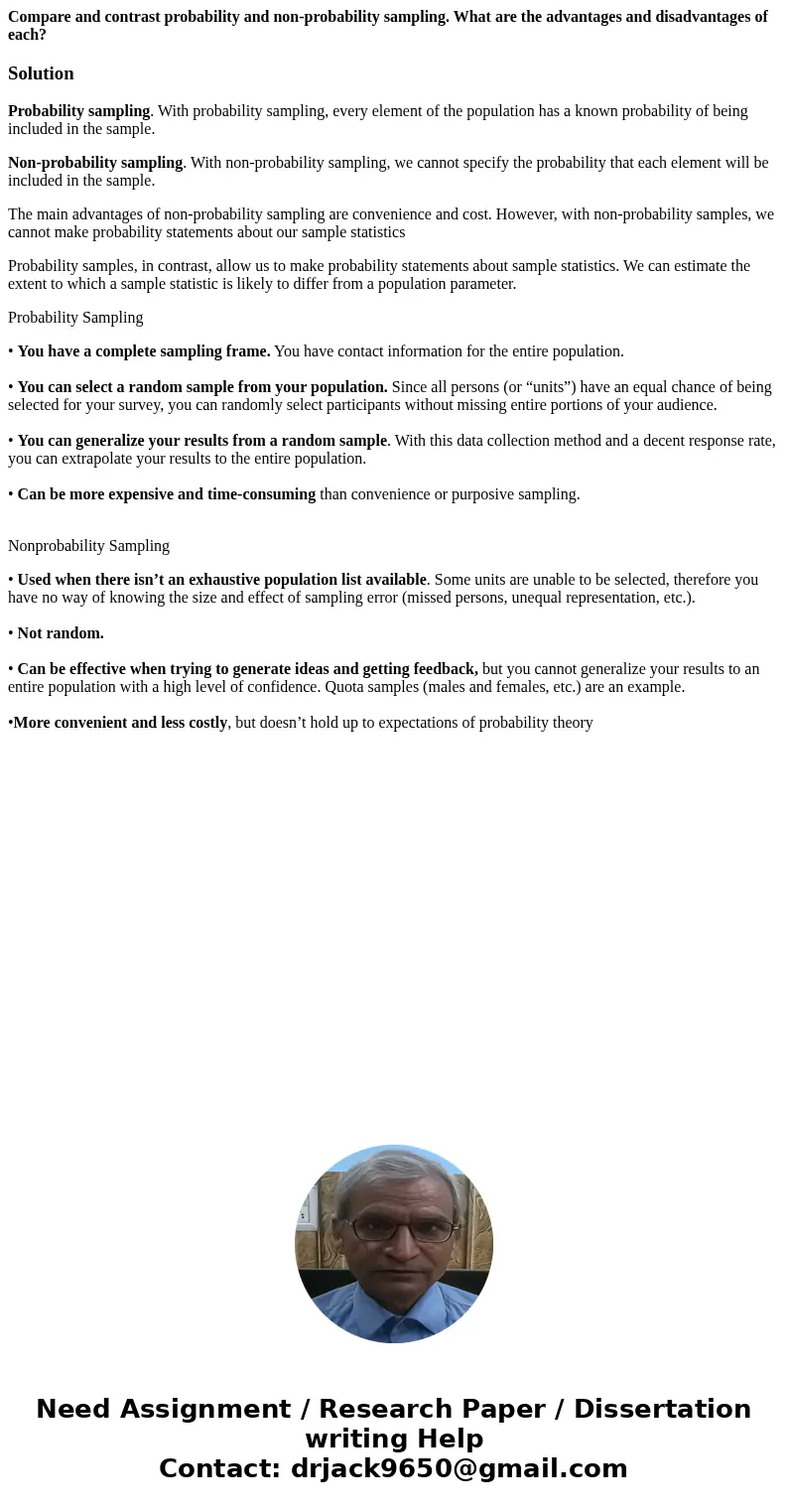Compare and contrast probability and nonprobability sampling
Compare and contrast probability and non-probability sampling. What are the advantages and disadvantages of each?
Solution
Probability sampling. With probability sampling, every element of the population has a known probability of being included in the sample.
Non-probability sampling. With non-probability sampling, we cannot specify the probability that each element will be included in the sample.
The main advantages of non-probability sampling are convenience and cost. However, with non-probability samples, we cannot make probability statements about our sample statistics
Probability samples, in contrast, allow us to make probability statements about sample statistics. We can estimate the extent to which a sample statistic is likely to differ from a population parameter.
Probability Sampling
• You have a complete sampling frame. You have contact information for the entire population.
• You can select a random sample from your population. Since all persons (or “units”) have an equal chance of being selected for your survey, you can randomly select participants without missing entire portions of your audience.
• You can generalize your results from a random sample. With this data collection method and a decent response rate, you can extrapolate your results to the entire population.
• Can be more expensive and time-consuming than convenience or purposive sampling.
Nonprobability Sampling
• Used when there isn’t an exhaustive population list available. Some units are unable to be selected, therefore you have no way of knowing the size and effect of sampling error (missed persons, unequal representation, etc.).
• Not random.
• Can be effective when trying to generate ideas and getting feedback, but you cannot generalize your results to an entire population with a high level of confidence. Quota samples (males and females, etc.) are an example.
•More convenient and less costly, but doesn’t hold up to expectations of probability theory

 Homework Sourse
Homework Sourse